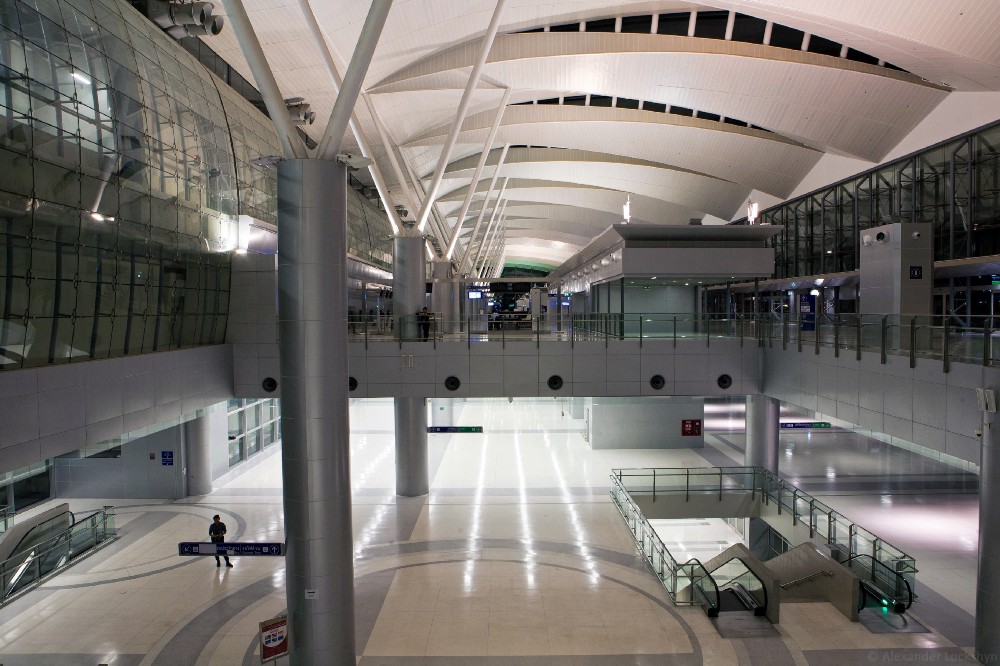Cultural and technological development of most places in the world is more or less synchronous. For example, American coastal states or Northern Europe are culturally sophisticated and feel high-tech too. Alternatively you could explore Equatorial Africa and find it lacking both culturally and technologically.
However it is more interesting and mind-shifting to explore places, where cultural and technological development are not in sync by any means. For example, there are many towns in Central and Western Europe which were built in medieval times and still look very medieval, while having modern work ethics, modern healthcare and modern living standards all in all. On other end of spectrum there are places, which culture look barbaric to most westerners, but technologies are advanced. Usually you could find such places in Southeast Asia and central China.
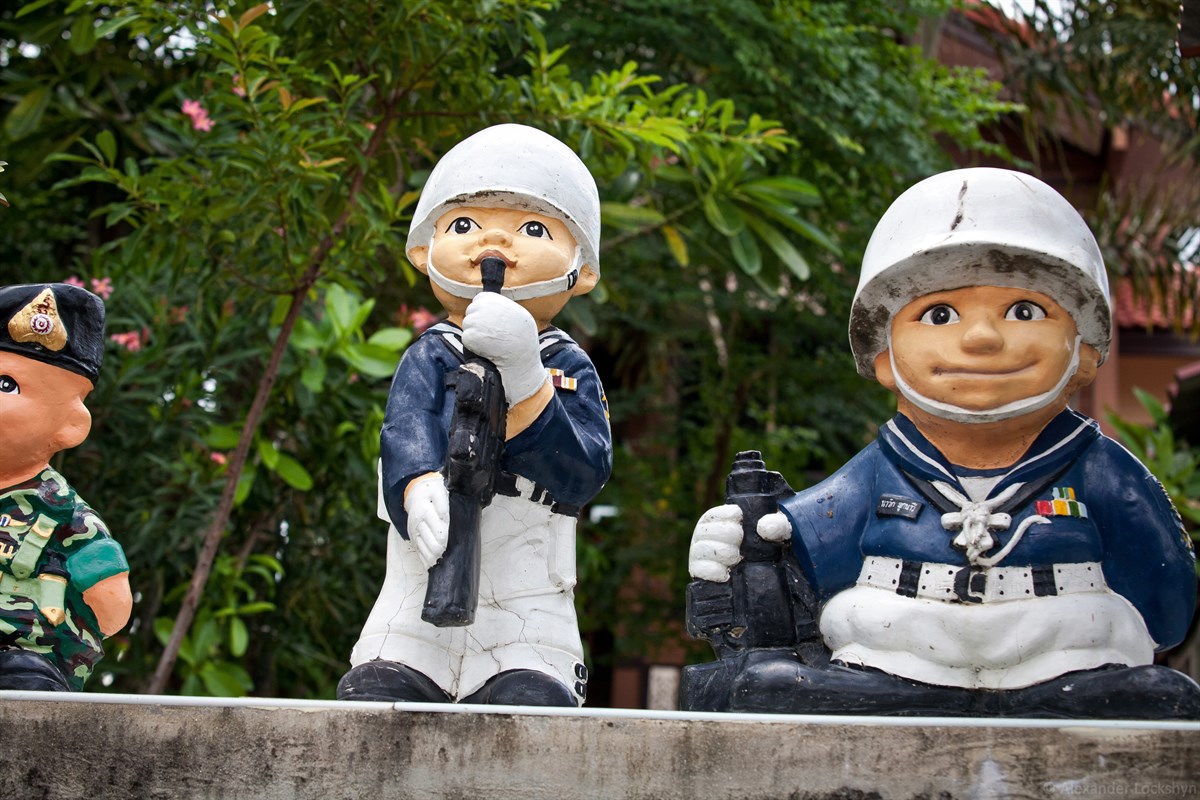
Bangkok is a great example of later. It is a purest form of “High Tech, Low Life I’ve ever seen, because being both super-futuristic and culturally retarded at same time.
It strikes your eye all the time, how alien Bangkok’s technology feels for its inhabitants. Metaphorically you could call it “Large Hadron Collider Operated by Monkeys”.
Let’s explore a few cases of such advanced vs retarded things.
Urban Planning and Cable Management
You stay in a hotel at the highest building in the city (which is not expensive by Western standards) for its view. From the window you see magnificent modern city with hundreds of skyscrapers.
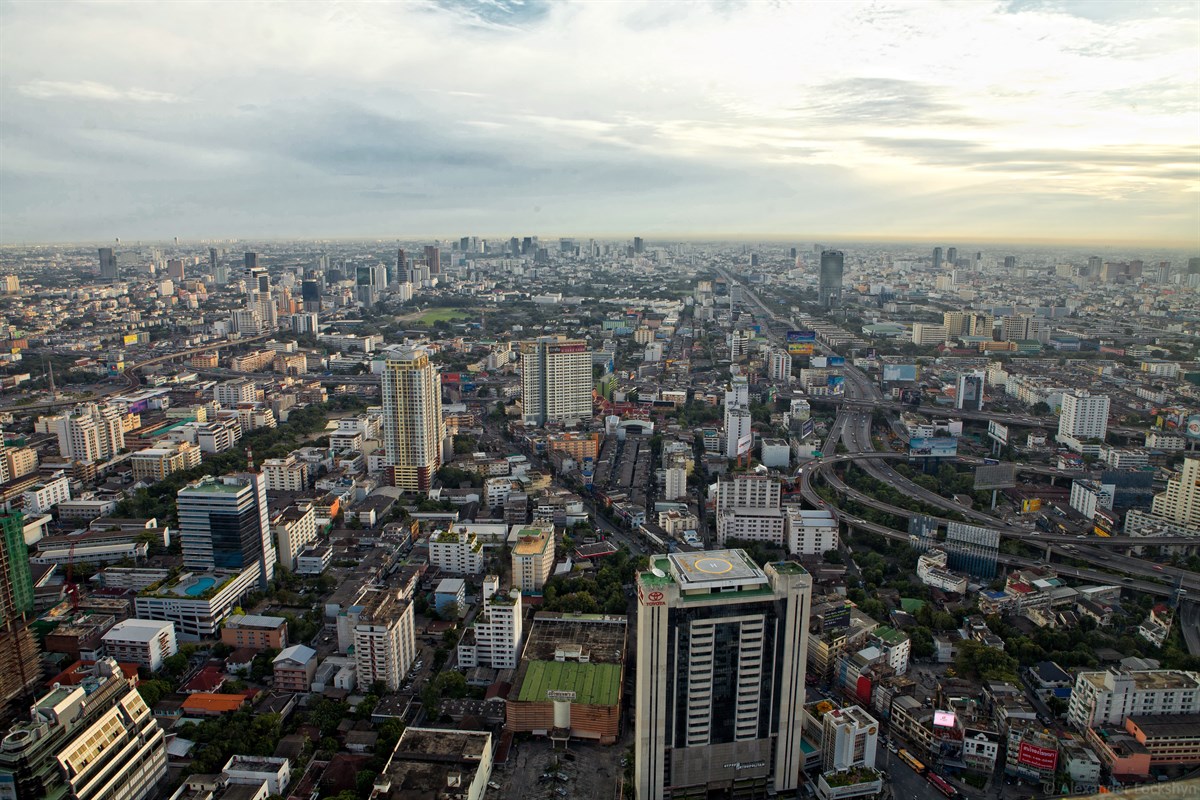
You exit the hotel and instantly get into this mess.
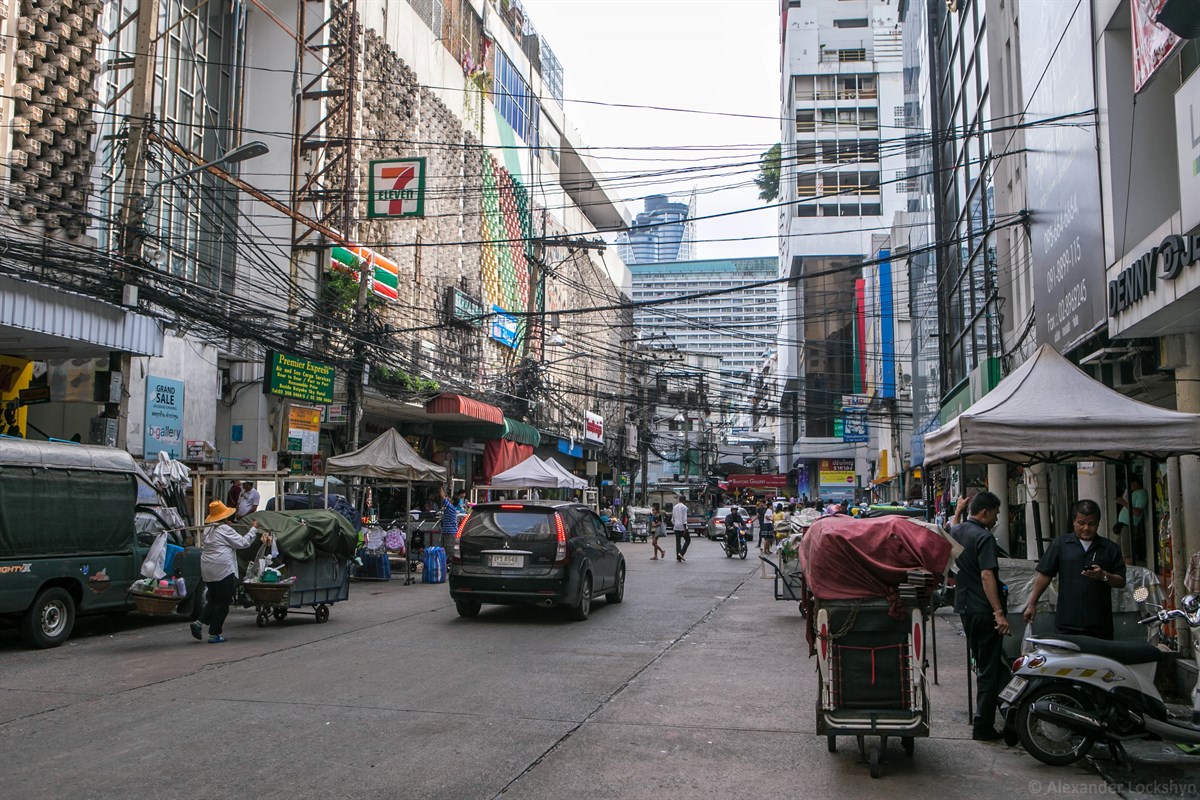
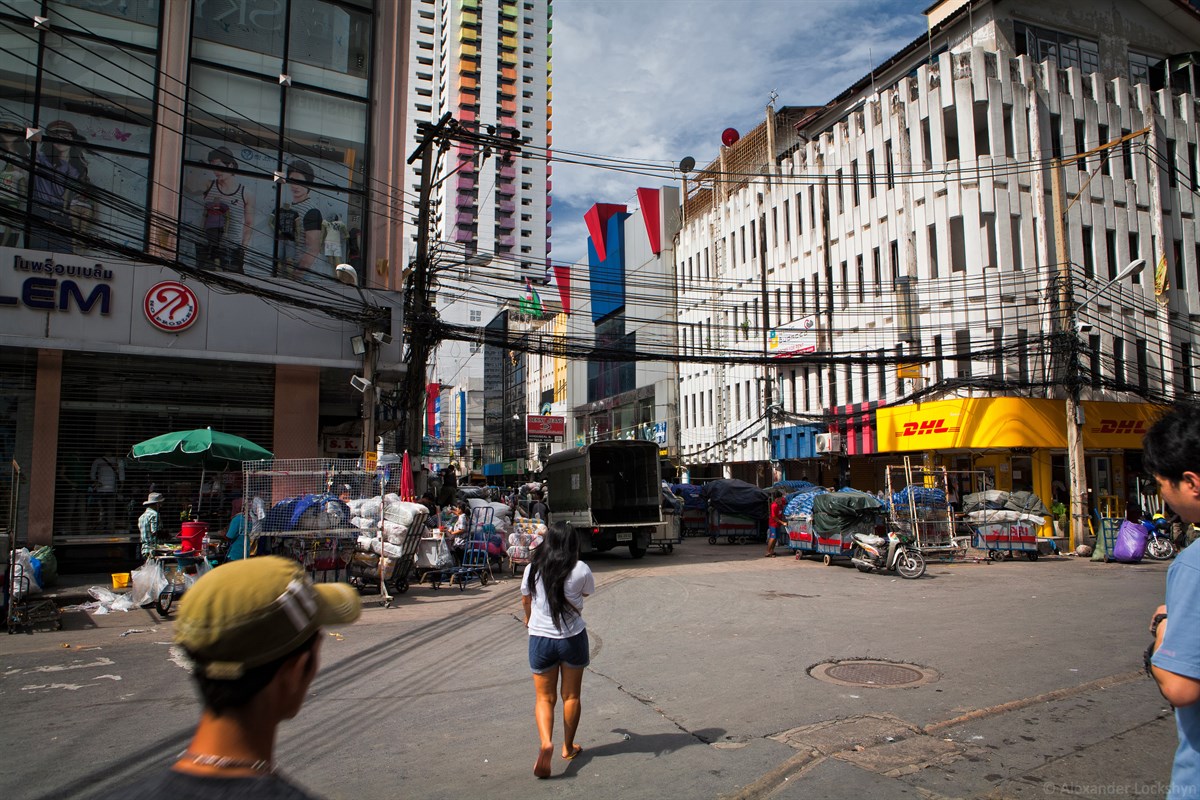
The hotel is situated right in the middle of large bazaar. At first you think this is a minor mismanagement, but let’s look on the whole area around. Most of high rise buildings you see on the picture are 4 and 5-star hotels in Bangkok city center and virtually all of them are situated in this bazaar area. Looks like urban planning is not even a thing in Bangkok. I thought cities are not built this way since Renaissance.
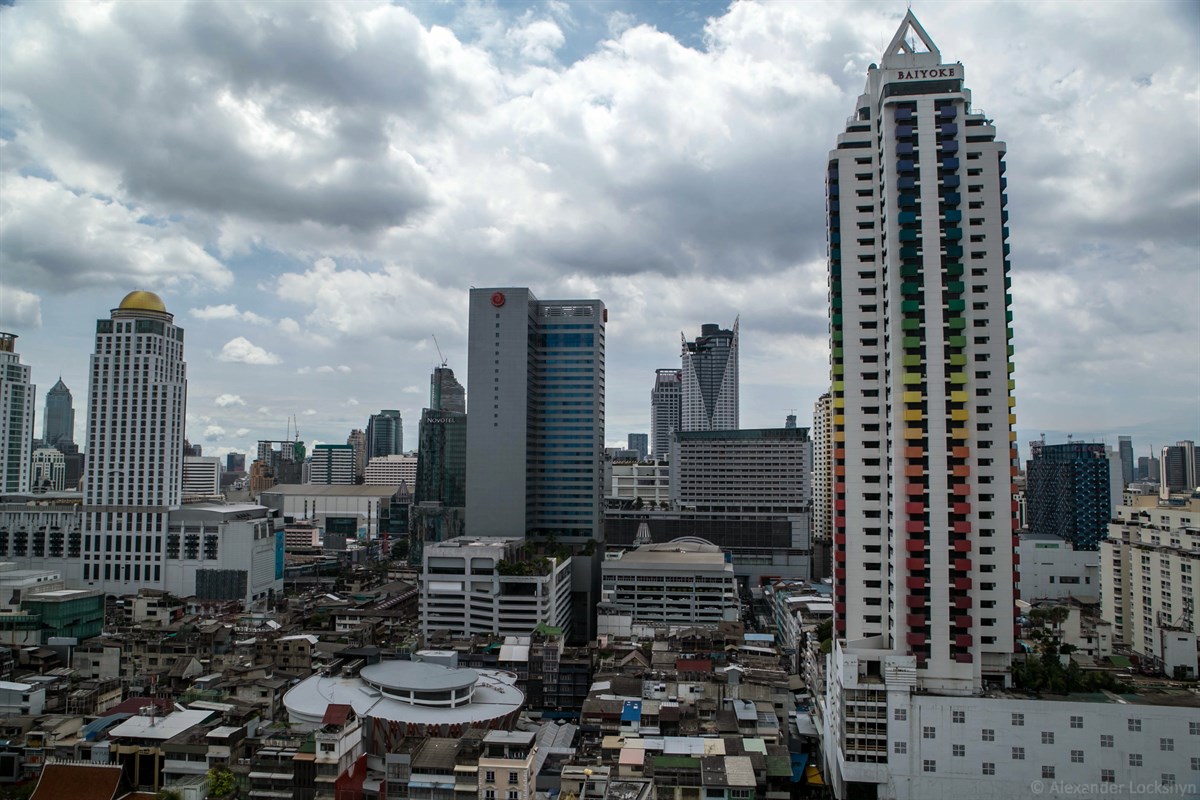
Sadly, this are a nation which builds skyscrapers, but incapable of running electric cables under the surface.
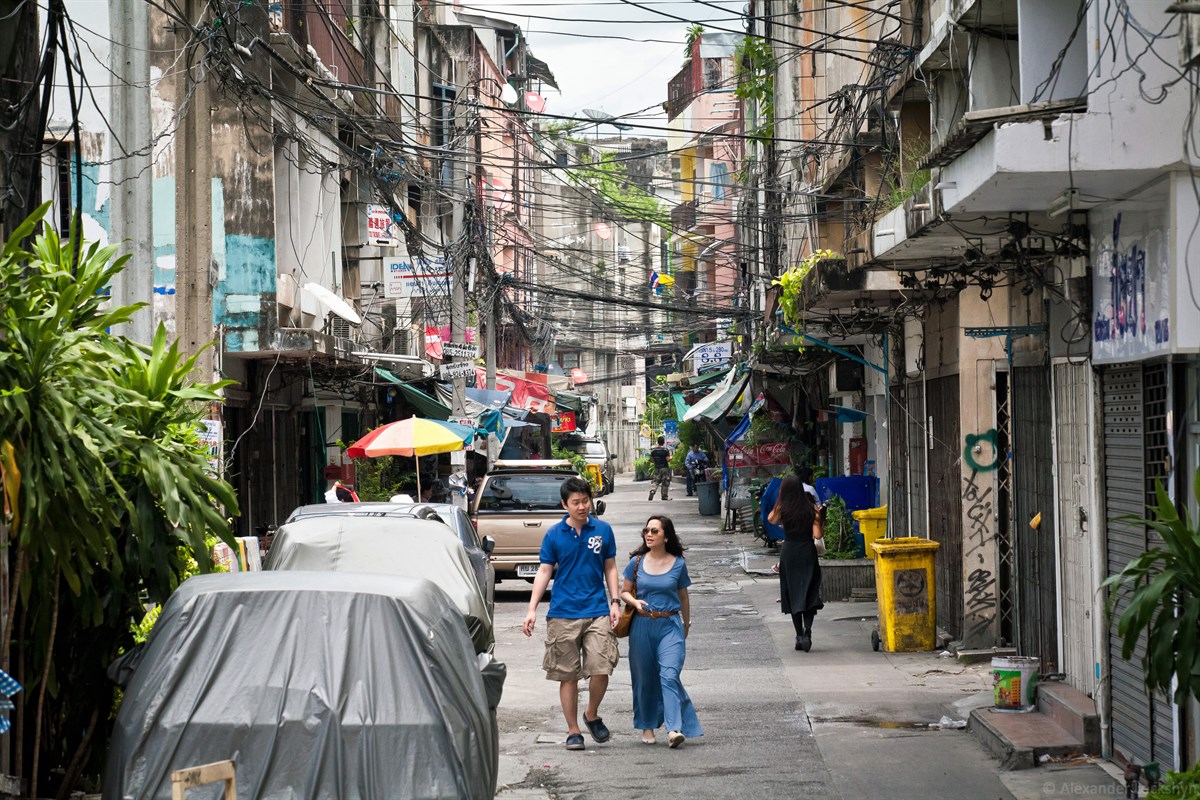
The use of sidewalks and Bangkok hygiene
In Asia the way people use sidewalks is a great marker to see how civilized or urbanized the place is. Less civilized societies are not accustomed to sidewalks and use it for anything but walking.
In Bangkok you are forced to walk on vehicle roads because sidewalks are occupied by parked bikes, street food vendors, or some goods.
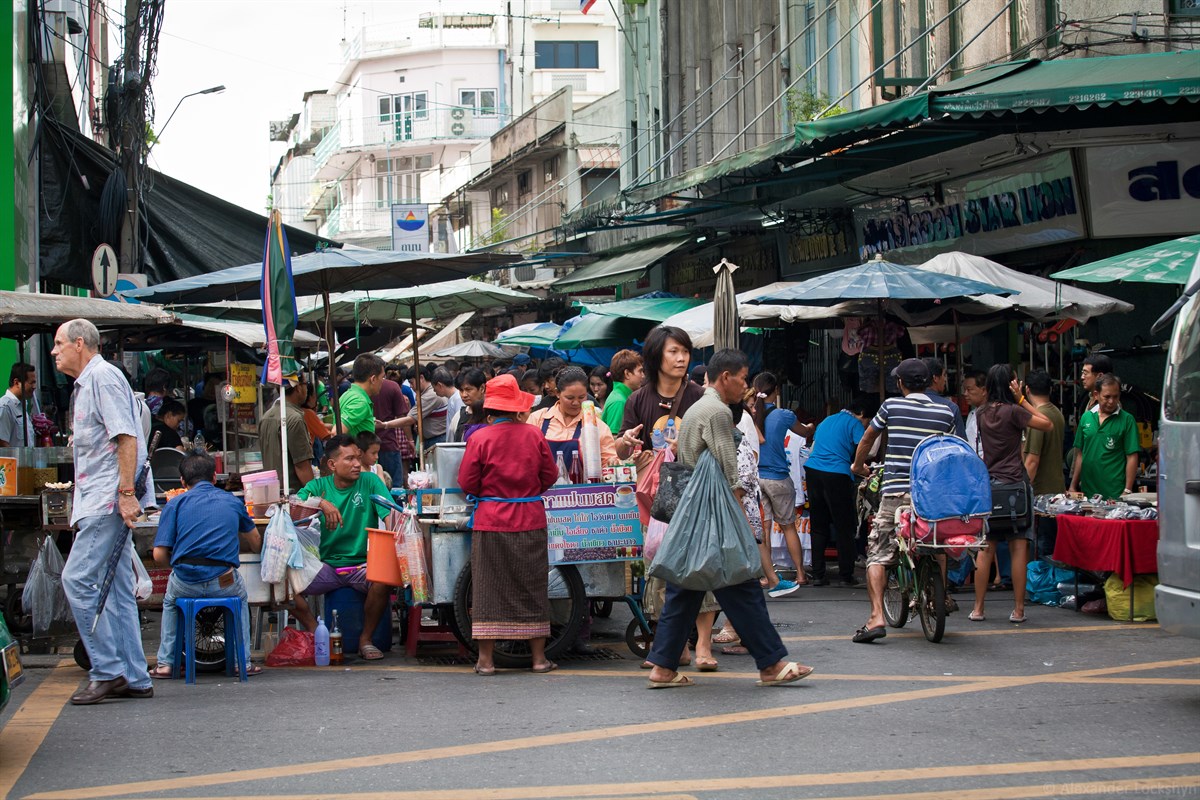
There is a huge disconnect between government trying to modernize the city and its inhabitants.
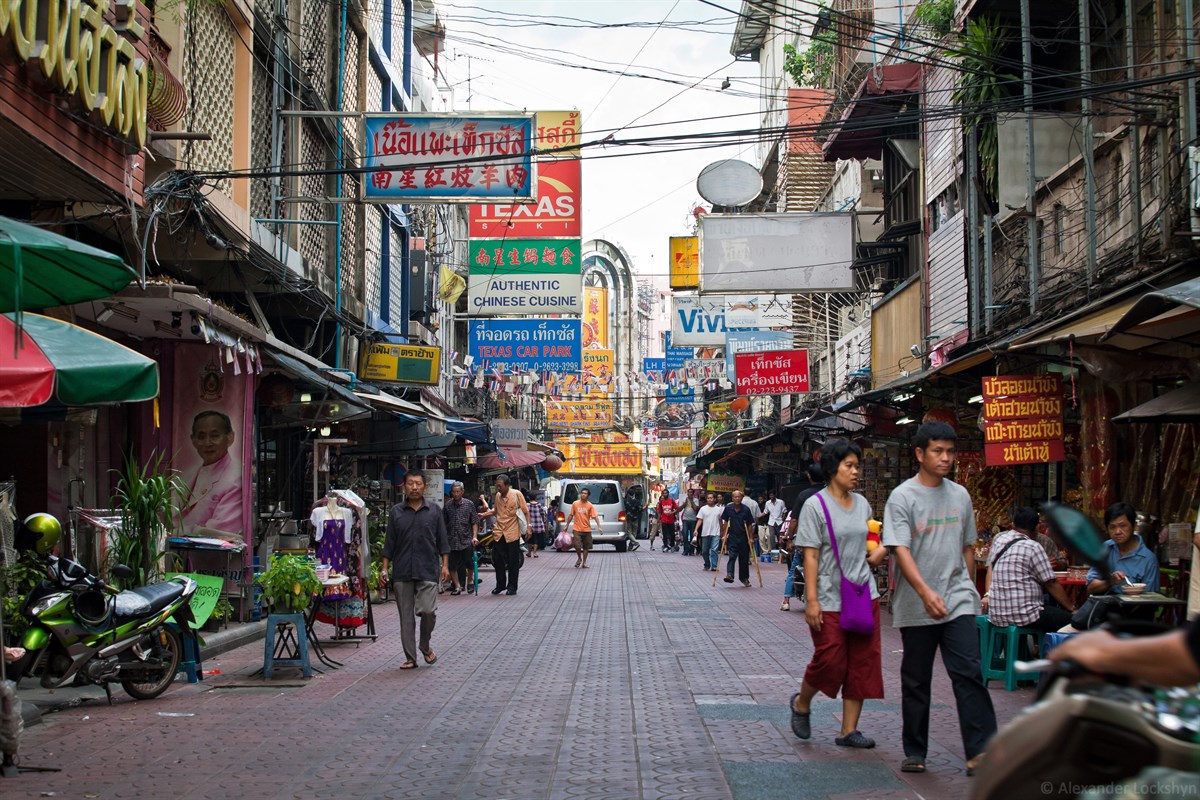
Sidewalks are used for anything by walking.
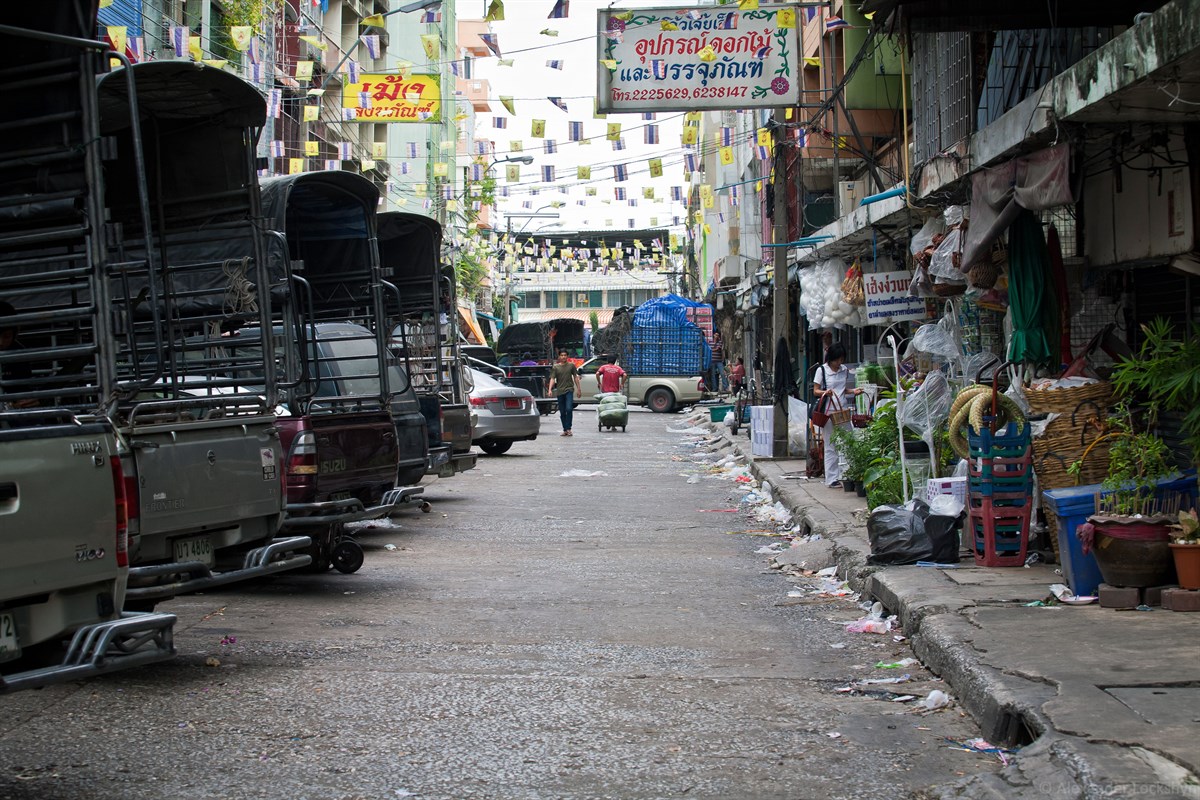
It is not uncommon to see seamstresses working on sidewalks near a road with heavy traffic.
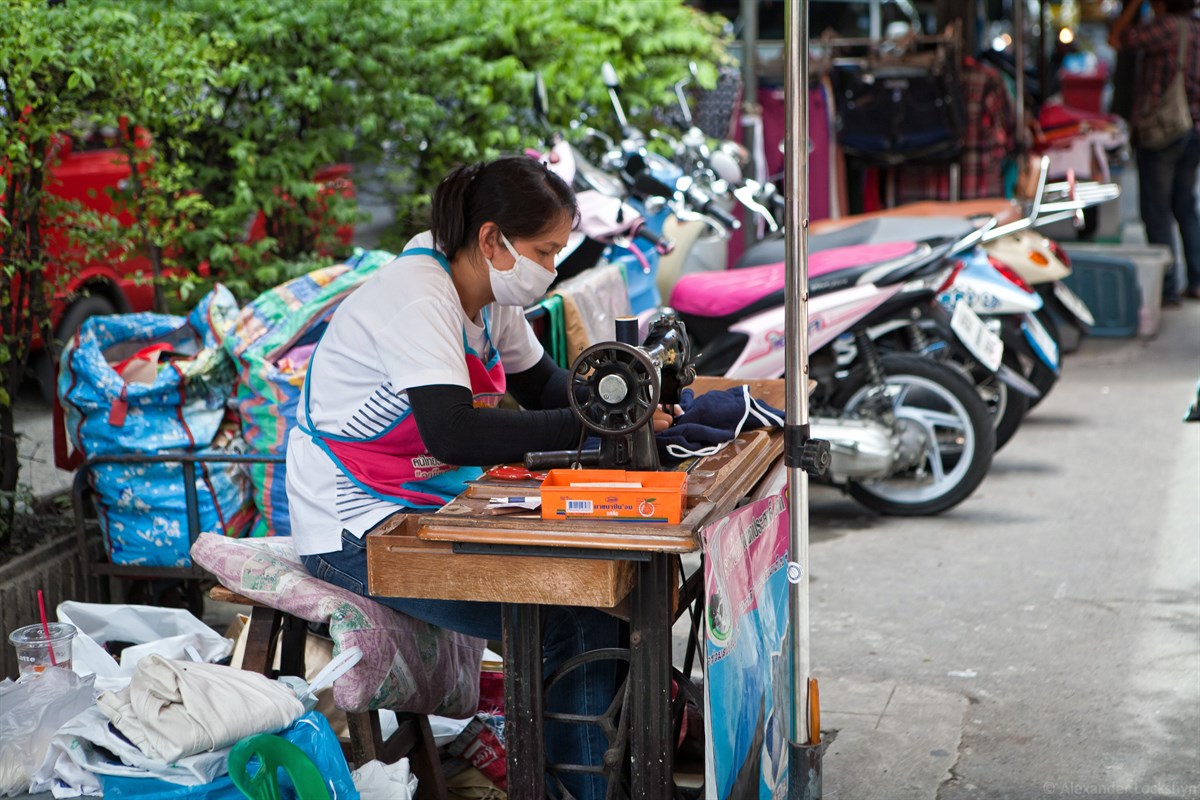
Thai hygiene drives me crazy. It is common to see street food stalls and small restaurants on a sidewalks of dirty streets, on a dusty corners of construction sites and even… few steps off public toilets. I wanted to scream “What’s wrong with you, people?”.
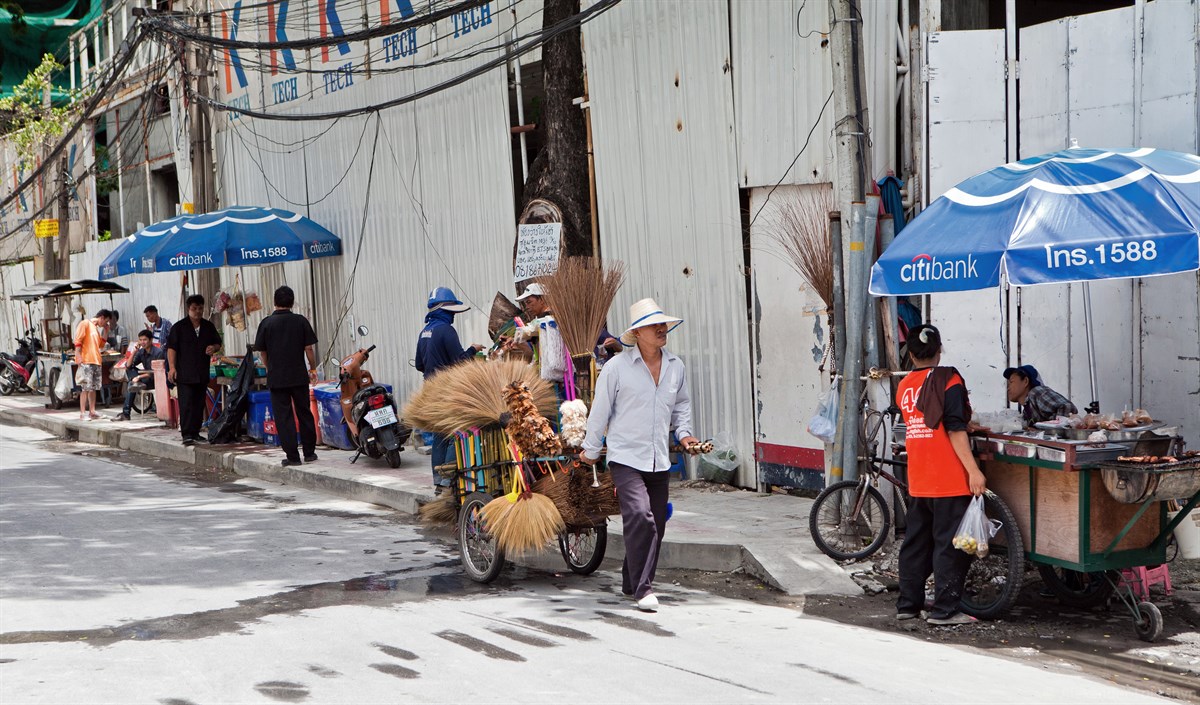
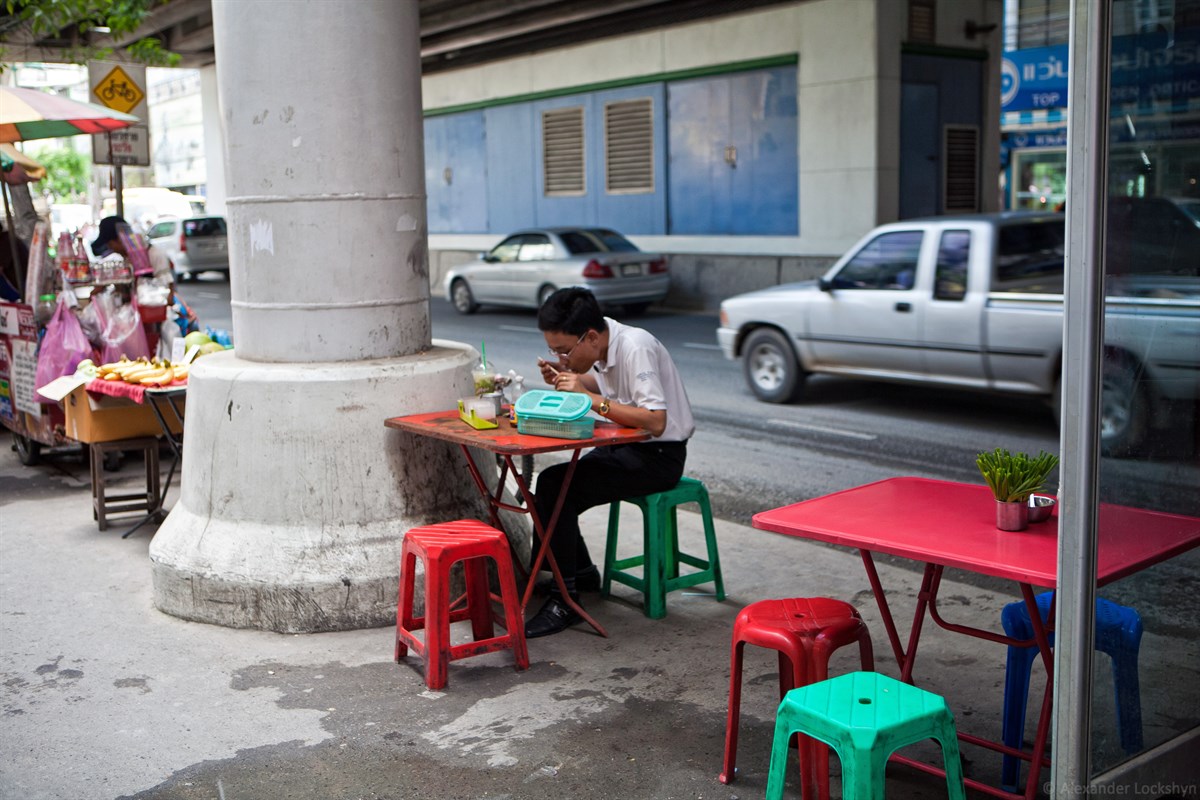
Rapid transit systems
Bangkok has superb rapid transit systems: subway and 2 overpass systems: BTS Sky Train and Airport Rail Link.
Airport Rail Link is expensive and awesome — there are not many stations, but it gets you from the airport to the city center in under 20 minutes (remember, Bangkok is huge city). On the following photo there is an Airport Rail Link station, situated right above some slums and old railroad.
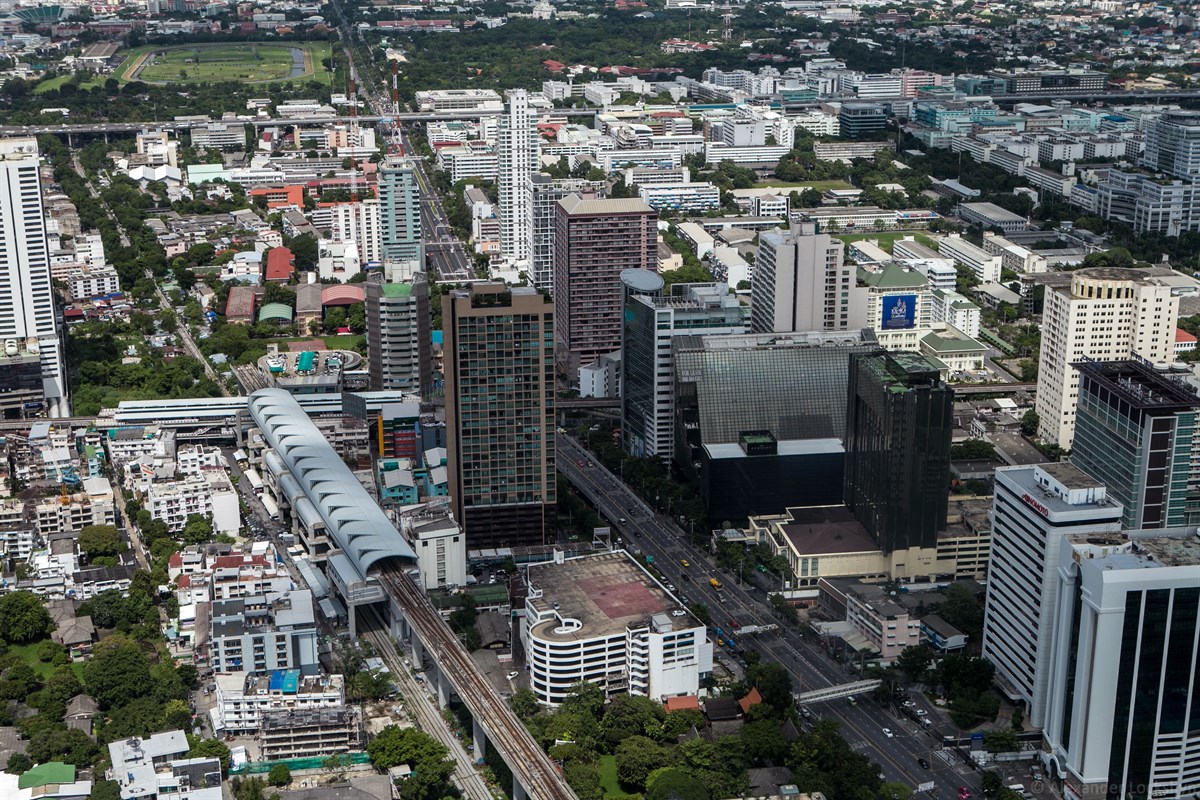
BTS Sky Train is much more controversial. It is another example where you see huge disconnect between government strategic initiatives from one side and poor execution with low cultural level on other side. Why?
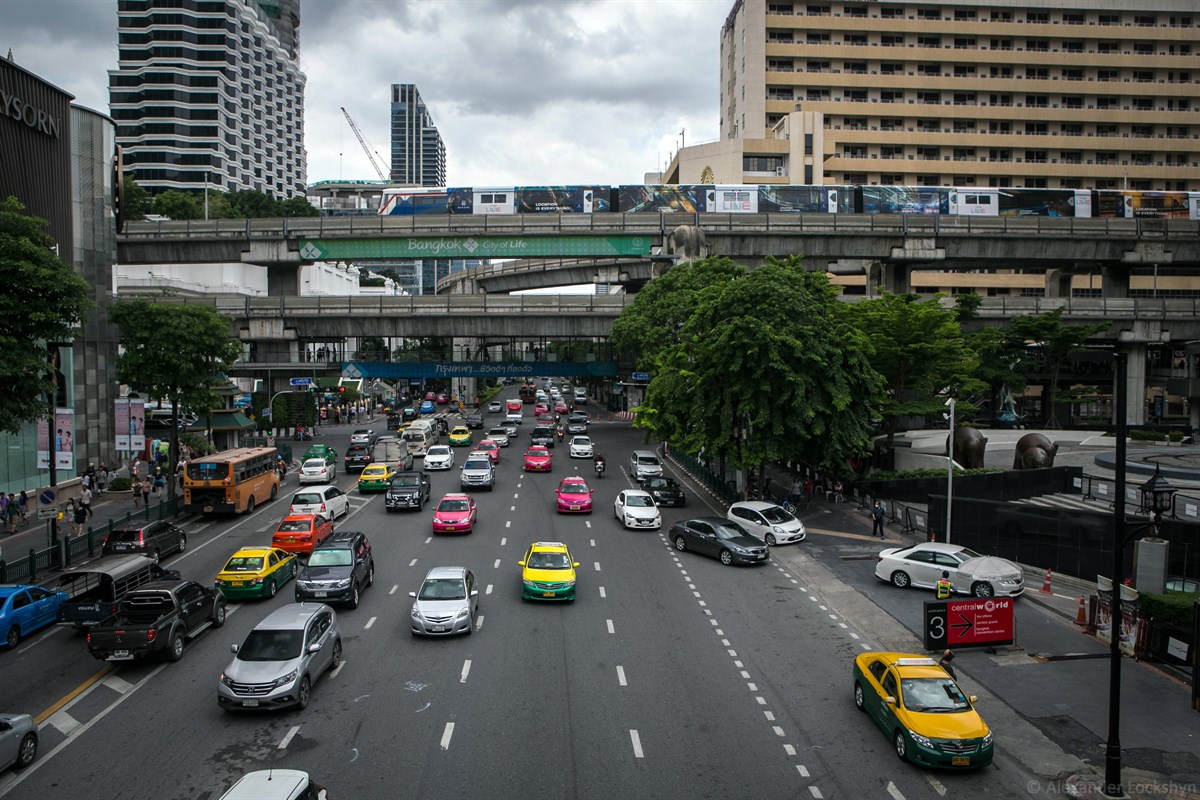
Example 1 — temperature. Bangkok has tropical climate which is hot and humid. So Sky Train cars are air-conditioned. Sounds awesome, what’s the catch? It is freezin’ cold in that cars. Inside temperature is about 18° Celsus (64 Fahrenheit), while outside is 32° Celsus (90° Fahrenheit). Lot of people take sweaters with them and wear in sky train.
Example 2 — train waiting culture. In a rush hour sky trains are overcrowded so you should either push through and ride like a fish in a can or stay away. You come, see overcrowded train, see others pushing through, but wait for another one. This loop continues 2 more times. 5 minutes later another train comes, almost empty. Locals just don’t realize waiting for next train is an option.
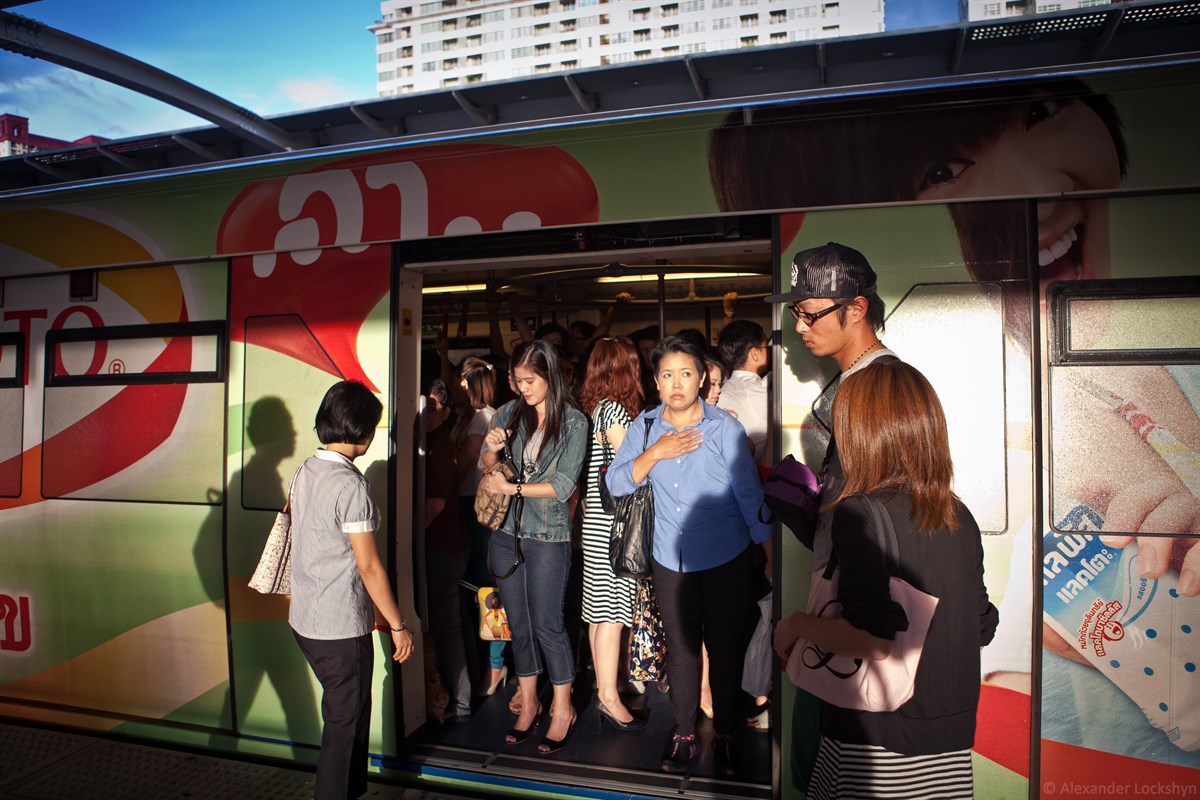
Example 3 — ticket lines. Sky Train stations are equipped with ticket machines, however those machines accept just low-value banknotes. As a solution each station has a ticket office, where they don’t sell tickets but exchange high-value banknotes into low-value ones and since it is a labor-intensive work, there are long lines waiting for the change. The only exception is 1 or 2 central stations, where they have machines, that exchange banknotes. Why the hell can’t they put those machines to all stations or accept high-amount banknotes as other cities do? Isn’t it cheaper and easier than paying salary to clerks, who just exchange money all day long and do it freaking slow?
Getting cash in the Airport
There is on-arrival visa available at Bangkok airport, which is convenient and good. And as usual in Bangkok, you have brilliant ideas on top, but pure execution on the bottom.
You cannot pay for the visa with a credit card. No problem, you ask airport staff how can you withdraw some cash to pay. And they guide you in a completely mockery way:
Me: How can I withdraw the money to pay for the visa?
Staff: No problem, sir! You need to get to another floor, we have ATM terminals there.
Me: How can I get there, where is the elevator?
Staff: You should pass border controls first and then you could enter the elevator.
Me: Could I pass border controls without a visa?
Staff: No sir, you should get a visa first!
Me: But how can I get a visa if I have no cash and (to withdrew it) I need an ATM terminal which is on other floor and I need a visa to get to that floor?
Staff: Just get a visa and go to the the elevator. (*smiling*)
Me: Are you kidding me? (*angry*)
Staff: No sir, sorry, how can I help you? (*bowing*)
I had the same talk with 2 other staff members and felt like a Kafka’s novel protagonist. Luckily I found $100 in my backpack pocket, that I’ve forgotten about, and passed. Second time visiting Thailand I knew: no cash = no entry.
Probably what happens to Bangkok and Thailand is not unique. Other (more developed) Asian countries, such as Japan, Korea, Singapore or Taiwan were in a similar future shock situations decades ago and passed it successfully. Let’s hope Thailand’s culture will overtake its technology soon. Meanwhile it is a true cyberpunk heaven and great place to explore high tech and low life combination.






